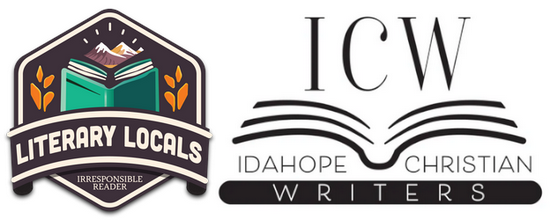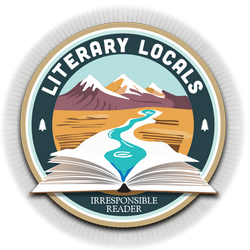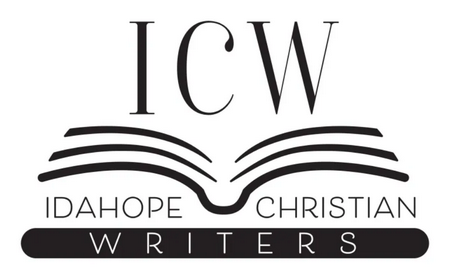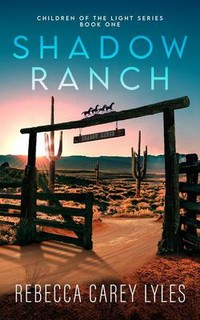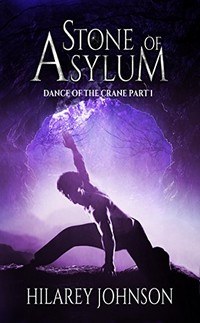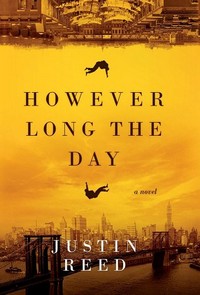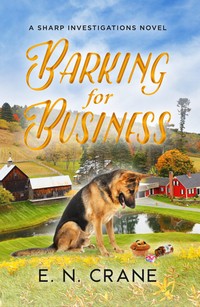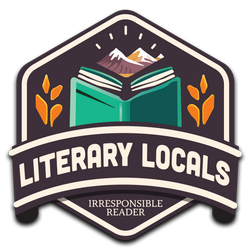
It’s time for the next (and hopefully not last) Q&A I arranged after the Boise Library! Book Faire. I hope you enjoy it as much as I did.
Before we get into things, why don’t you give the reader a brief introduction to you and your work.
My name is Taylor Gray and I’m a software engineer turned author. I’ve always had an interest in sci-fi, fantasy, and superheroes since childhood. My urge to write stories first began in high school when my friends and I would pass around a notebook to write our own sci-fi fantasy story. Since then, I had been writing off and on, primarily focusing on my profession. Finally, in 2019, I decided to dedicate the time to sit down and finish my first novel which became the first book in the Trials of Incomplete Heroes series. Every book in that series is entirely self published. In 2022, I finally landed the attention of a publisher and, as of this year, published Mercury Snow.
Trials of Incomplete Heroes is available on Amazon at: https://www.amazon.com/dp/B08L9J28Z4
Mercury Snow is available on Amazon at: https://www.amazon.com/Mercury-Snow-Taylor-R-Gray/dp/1961093057 or Barnes & Noble: https://www.barnesandnoble.com/w/mercury-snow-taylor-r-gray/1143603816
I do have a Facebook page for my books here: https://www.facebook.com/TrialsOIH
Are you a native Idahoan? What is it about Idaho that keeps you here?
I’m a native Idahoan, born and raised in Boise. In my high school years, I used to hike around the White Cloud mountains and camp at various lakes. The varied landscape of Idaho is fascinating. We have mountains, forests, deserts, lakes, rivers, etc… We just don’t have an Ocean. Why leave when I could have any scenery I wanted in this state already? Also, at heart, I’m a homebody who doesn’t like crowds or travel.
That last sentence sums up my primary reason for sticking around, too.
Why risk going somewhere you might not like to deal with crowds if you don’t have to. Idaho is a perfectly fine place to be.
Are you tied into some sort of local author/bookish group/culture? If so, tell us about it and how it helps you as an author. If you’re not, is there a reason for it?
In terms of local author groups, no. I am, however, a part of an author group through my publisher and we still meet at least once a month online. In the past, I attempted to join a few Facebook groups which I don’t think exist anymore. I was also going to form an in person group with a few local friends, but none of us ever got around to it. As both a software engineer and an introvert, joining or creating social groups is outside my expertise.
That’s a good point—particularly post-COVID, an online group seems like a no-brainer. Is this a critique group, a mutual encouragement time, or something else?
My publisher calls it a “mastermind” group where various other authors under this publisher get together to read segments of what they’re working on. The goal is to provide feedback from the standpoint of a reader such as:
- How did this segment make you feel?
- What questions did it leave you with?
- What narrative or plot loops did it open that need closing in the future?
- Did it make sense?
It’s effectively a group to workshop your books.
What kind of events in the area do you attend—either to sell/promote your books or to network with authors? Are there any outside of this area that you hit regularly and wish we had something like it here?
The Boise Book Fair was really the first real event of this sort I’ve attended. In terms of other events, I’m in talks with my publisher for some online events at their discretion. In terms of events that I would like to see, it seems as though the online interview/podcast is becoming increasingly more valuable. Having videos on Youtube of recorded zoom or discord interviews of various people seems to be popular these days.
So, did the Library’s Faire live up to expectations? That is, if you had any. Did you learn (from your experience or talking to others) what to do more of or not to do at your next event? In general, what was your experience like?
I didn’t really know what to expect from the Book Fair. Part of me expected more people to show up and more books to be sold. I gathered from others a the event that this was typical of these events where most of the interactions are just to spark interest. Most people will take a card or a flyer, but will rarely walk out with a book at that time. As long as information on my book gets out there, I’ll be satisfied. I vastly oversubscribed on the number of books and cards to bring. However, I now have the supplies for other events. I would also like to have too much of something rather than not enough.
The fact that I have two different pen names, one for my self published series and one for my traditionally published book, also seemed to hamper me. People would walk up to me and want to talk to me about Mercury Snow, then want to talk to my assistant about my self-published books, believing he was T.G. This was not their fault as I separated things out and his chair was directly behind the Trials of Incomplete Heroes section. In the future, I will have to do a better job of making it clear both T. G. and Taylor R. Gray are me.
The other thing I learned was how important it is to have non-cash payment methods. It was only at the last minute I decided to have a Venmo option for payment. Venmo accounted for half of my two total sales. Several other people had card readers which is something I’ll need to invest in if I continue to do these sorts of events. In general, I’d say it was a good experience.
What’s the breakdown of your audience—do you have a strong local base, or are your readers from other parts of the world?
The vast majority of my audience at this point in time is local to Idaho. I am making sales (numbered in single digits) worldwide including a few from the United Kingdom and even India.
Have you gotten any feedback from the UK or India? Any idea how you’re received overseas (by the ones of readers you have or otherwise)?
One of those sales was from a coworker I work with in my Software Engineering job, so the feedback is biased. Amazon doesn’t give me a clear view of where ratings come from, just that I have ratings. Feedback in general is positive.
Do you think there are particular challenges or advantages to being a writer in the Treasure Valley? (possibly both)
I do think that one of the disadvantages to being a writer in the Treasure Valley has to do with finding a decent publisher. Most publishers are in New York or California these days or in large cities. In the online era this isn’t necessarily an issue until you realize you’re competing with celebrities and everyone else in those areas for the publisher’s attention. When you do find a publisher that will talk to you, they often want to insert New York or California ideas/ideals into your story. There’s also fewer people in a place like Idaho when compared to New York or California. I myself enjoy having empty spaces and fewer people and crowds around. However, more people also means more customers.
I do think there are also advantages to being a Treasure Valley writer. We experience most weather patterns and have varied landscapes we’re familiar with to pull from as settings for our own works. There’s also plenty of space to get away to think and write if we need to. Another interesting feature of the Treasure Valley is we have both a decently large city in Boise and extensive farmlands. It’s easy to gain perspective for both rural and urban lifestyles, often within a short walk from each other.
That second paragraph brings up a few things that no one else in this series has mentioned and is a great way to look at it.
Idaho has plenty of advantages for an introvert who doesn’t like crowds like me. If you were to ask me if I’d prefer to live in a city in New York or California so I could have a better publisher, I’d say no. I’ll stay here every time. Even presuming I could make millions in big cities, I’d be miserable there.
Do you bring Idaho (or some sort of Idaho-sensibility, assuming one exists) to your work? Whether or not anyone else sees it, can you look at some aspect of your writing and think “That’s Idaho” or “I would do ____ differently if I was a Kentuckian or from Illinois?”
It’s difficult to say. I don’t base my stories in Idaho and I try to write so anyone anywhere can understand and enjoy it. If I were to point to something that is directly inspired by Idaho is probably the varied landscapes within my stories. The main character in Trials of Incomplete Heroes is from a middle sized town surrounded by open fields and forests. Much of the action also takes place in a larger city near a mountain range and a sprawling woodland. It’s also possible my main characters have more of a Midwestern/Idaho attitude and moral compass. As an example, in both Trials of Incomplete Heroes and Mercury Snow, the protagonists don’t swear and they try to be polite and hospitable where possible.
One final question, is there a book (or two…or 18, if you get really carried away), that embodies Idaho/the Idaho spirit to you to recommend to my readers?
To be honest, I don’t really read or write through that lens. Most things I enjoy and write are science fiction or fantasy which could feasibly take place anywhere.
However, my uncle, Dale M. Gray, is also an author and an archaeologist who is fairly familiar with Idaho and the surrounding area. He has written two books that may be interesting to your audience.
His first book is about the history of the Cathedral Pines campground in Idaho titled, A Holy Place in Idaho: A Centennial History of Idaho’s First Church Camp. It can be purchased from Amazon here: https://www.amazon.com/dp/0578474069
His second book is about his life and various adventures as an archaeologist in the area titled, The Zen of Dale: Tales of a Free-Range Historian. It is also on Amazon and can be found here: https://www.amazon.com/dp/B0BVPLD4B7
Cathedral Pines played a big role in my early years, I’m definitely going to pick that up. You should get your uncle to give you a commission.
I’ll be sure to tell him to remember who his favorite nephew is this Christmas.
Thanks for your time and participation! Hope you enjoyed it!
Be sure to check out the work of T. G. and Taylor R. Gray and see if anything sparks your interest (I’ll be at least dabbling in both ASAP).





